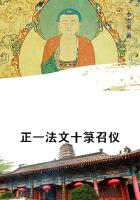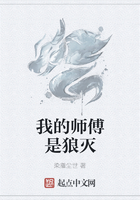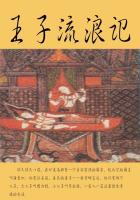The Kantian philosophy is critical philosophy, but from it the fact has been omitted that we cannot constitute the infinite with finite categories - and immediacy is such an one. When we regard this opposition more closely all knowledge may be termed immediate, but all immediate knowledge is likewise mediated in itself. This we know within our consciousness, and we may see it in the most general phenomena. I know, for example, of America immediately, and yet this knowledge is very much mediated. If I stand in America and see its soil, I must first of all have journeyed to it, Columbus must first have discovered it, ships must have been built, &c.; all these discoveries and inventions pertain to it. That which we now know immediately is consequently a result of infinitely many mediations. Likewise when I see a right-angled ******** I know that the squares of the two sides are equal to the square of the hypotenuse: I know this immediately, and yet I have merely learned it and am convinced of it through the mediation of proof. Immediate knowledge is thus everywhere mediated, and Philosophy does nothing but bring this to consciousness -demonstrating the mediation which in point of fact is already present there, e.g. in religion, &c.
The philosophy of Jacobi, inasmuch as it says: “Thought cannot proceed further than to the feeling of God,” has been accepted utiliter; it was more easily arrived at than in the case of Kant.
Knowledge, however, is something very different from what Jacobi calls such; against finite knowledge his arguments are quite correct. Immediate knowledge is not knowledge, comprehension, for that implies that the content is determined in itself, i.e. is grasped as concrete.
But in immediate knowledge it is the case that the only fact known of God is that He exists. For should there be determinations respecting God, they must, according to Jacobi, be grasped as a finite, and the knowledge of them would again merely be a progression from finite to finite. There thus remains only the indeterminate conception of God, an “Above me,” an indeterminate Beyond. This gives accordingly the same result as does the Aufkl?rung, viz. that the highest reality is ultimate: we find the same in French philosophy and in Kant - only here we still have the opinion that this emptiness is the highest philosophy possible. But if each standpoint has an aspect wherein it is justified, there always rests in the proposition that the human mind knows God immediately, the important consideration that we have here a recognition of the ******* of the human spirit: in it we have the source of the knowledge of God, and all externality of authority is thus abrogated in this principle. The principle is hereby gained, but only the principle of ******* of spirit; and the greatness of our time rests in the fact that *******, the peculiar possession of mind whereby it is at home with itself in itself, is recognized, and that mind has this consciousness within itself. This however is merely abstract, for the next step is that the principle of ******* is again purified and comes to its true objectivity, so that not everything which strikes me or springs up within me must, because it is manifested in me, hold good its true. It is only through thought, which casts off the particular and accidental, that the principle receives this objectivity which is independent of mere subjectivity and in and for itself - though in such a way that the ******* of mind still remains respected. One's own spirit must bear witness to spirit that God is Spirit; the content must be true. But this does not give authenticity to itself by its being revealed with certainty to me. This is the standpoint, and we have thus seen its deficiency and the greatness of the principle which is involved in it.
1. Tenneman's Grundriss von Wendt, § 406, p. 531; Rixner: Handbuch der geschichte der Philosophie, Vol. III. § 145, p. 317; Jacobi's Werke, Vol. IV. Sec. 1, p. 3.
2. Jacobi: Brief über die Lehre des Spinoza (second edition, 1789), pp. 85, 86 (Werke, Vol. IV.
Sec. 1, p. 110).
3. Buhle: Lehrbuch der Geschichte der Philosophie, Part VIII. pp. 386, 387; Mendelssohn's Morgenstunden (second edition, 1786), pp. 293-296.
4. Jacobi: Briefe über die Lehre des Spinoza, IV. Prop. pp. 225, 223 (pp. 223, 216).
5. Infra, pp. 418, 419.
6. Jacobi's Werke, Vol. II, pp. 7 seq.; p. 221, note.
7. Jacobi: Brief über die Lehre des Spinoza, supplement vii. pp. 419-421, and note (Werke, Vol.
IV. Sec. 2, pp. 149-151).
8. Jacobi: Briefe über die Lehre des Spinoza, supplement vii. pp. 422-426 (pp. 151-156).
9. Ibidem, pp. 426, 427 (pp. 155, 156).
10. Cf. Jacobi's Werke, Vol. III. p. 277.
11. Jacobi: Briefe über die Lehre des Spinoza, pp. 216, 217 (p. 211).
Section Three: Recent German Philosophy B. Kant.














